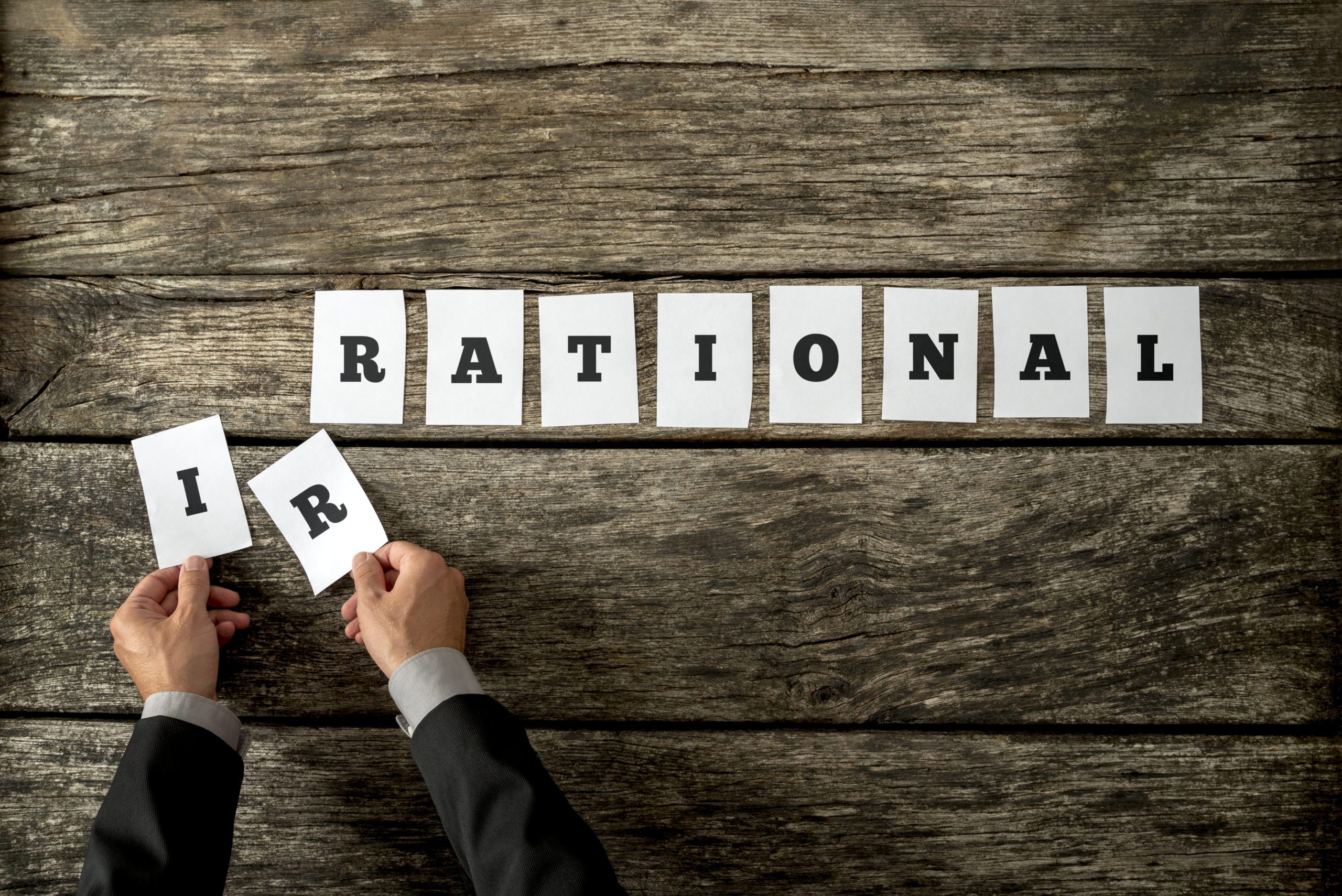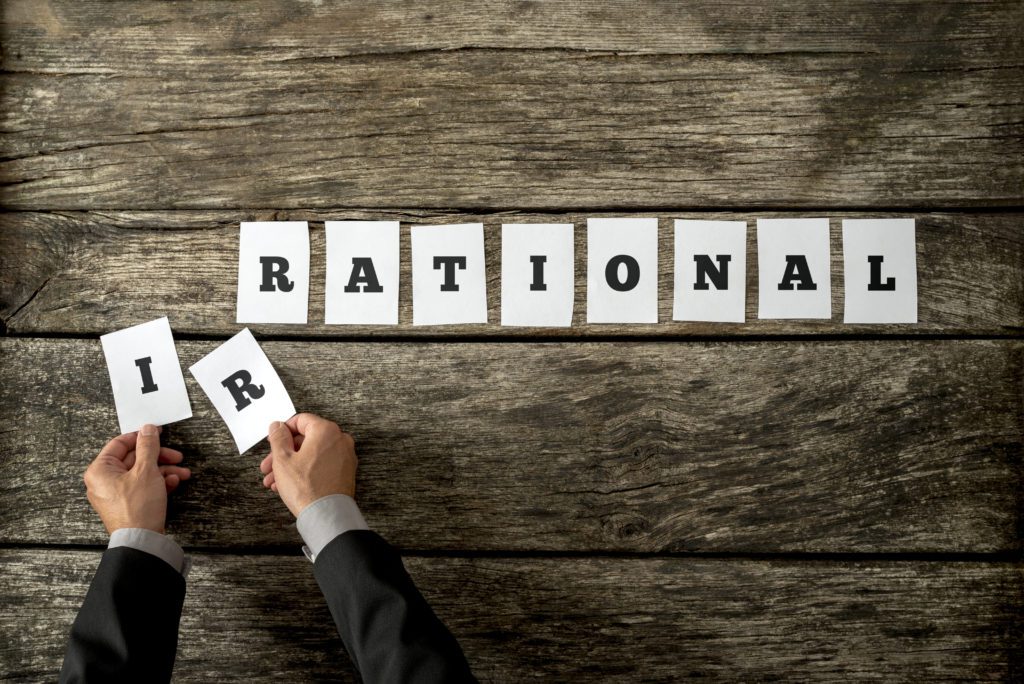
Irrational Beliefs
When beliefs turn from being our allies to foes?

Commonly understood as the thoughts we consider real and true, our beliefs are the filters through which we experience and judge ourselves, others, and our surroundings. They have the power to influence our feelings, and behaviors. We may not always be aware of their impact in our daily lives, some of us may not even know what our core beliefs are, but they’re guiding us at every step, sometimes in healthy and on others in unhealthy directions. Suppose you believe you are capable of successfully completing all tasks that you take up- how would that make you feel about yourself? Or, let’s assume you believe you’re good for nothing- how would this belief make you feel and behave and what other thoughts will this belief give rise to? What if you believed all humans are kind/ cruel – how would this determine the kind of relationships and social interactions you have? What if you believed everyone must be polite to you at all times?
As you read further, think of one of your beliefs. How many of the following characteristics can you notice in your belief?
- It distorts reality.
It is contrary to what actually happens in life.
- It gives rise to self-defeating behaviors.
It prevents you from achieving your goals.
For example, when faced with a problem, you either avoid it or you’re repeatedly acting in similar ways even though you’re not happy with the outcomes.
- It causes you to experience unhealthy emotions towards self and/ or others.
For example, feeling intense anger which is disturbing you as opposed to motivating you to act constructively or take care of yourself.
- It has a demanding element, almost like a compulsion.
Worded with “must”, “should”, “have to”, “ought”…
- Your entire well-being depends on it.
Else, you feel everything will be awful, you will not be able to tolerate or deal with the alternate situations, and you will see yourself and/ or another as a failure.
If you’ve identified one or more of the above features in your belief, it is likely that you’re holding onto a type of belief that psychologist Albert Ellis (1913-2007) termed as “irrational”. Founder of a form of psychotherapy called Rational Emotive Behavior Therapy (REBT), Ellis said, “People are not disturbed by things but rather by their view of things.” Say, you did not get the promotion you were hoping for, and you’re feeling very upset. Ellis would consider you’re feeling so not because you missed the promotion but because losing out on it may have made you think that you’re a loser/ failure. Hence, it is the belief about the event that determines your emotional state and following actions, and not the event by itself. According to REBT practitioners, the differences in people’s core beliefs explain why they feel different emotions and act in different ways upon experiencing similar events.
Ellis identified and explained several irrational beliefs during his lifetime. Following is a simplified version of some of them:
- I must be loved by everyone who I want love from. (Else??)
- I must do well in everything at all times. (Else??)
- Things should always happen the way I want them to happen. (Else??)
- I should always get the support I need from others. (Else??)
- People should always be polite and fair to each other. (Else??)
- My past will never change. It will continue to affect me the same way all my life. (Really??)
Irrational beliefs tend to create inflexible and unhealthy situations akin to an all-or-none, or a do-or-die type, which are not supported by reality. Realising them is rather impossible. Their extreme and generalised nature tends to take on the role of a trap, restricting one from living a fuller life. Let’s reflect on what alternate, rational versions of the above beliefs might look like.
It is not in my circle of control to ensure that I will be loved by everyone who I desire to be loved from. I may be very hurt, but does that mean I will leave myself to misery?
If I don’t do well in a task sometimes, does that really imply I’m a worthless failure? Or did I just fail at a particular something and that doesn’t take away from the rest of my skills? What a joyful experience life would be if everything always happened as per my wishes, but it can still be joyful if that’s sometimes not the case, right?
Feeling supported and cared for always adds to my strength. However, can I also learn to support myself sometimes, be it in the presence of absence of the desired support from others?
I can hope for a world where everyone is kind and considerate towards each other. But if there are times when some behave otherwise, there may be more to it than simply labeling them as villains deserving to be punished.
My past will indeed never change. But does that mean I can’t even try to reframe how I feel about it? I can. We can.
Given the limitless scope of their influence in our lives, it becomes important to first and foremost identify our beliefs and then understand whether they are helping us grow or they’re taking away from the quality of our lives? Changing an irrational belief is easier said than done. Prior to that, recognising the irrationality of a core belief you hold can be daunting by itself; primarily because most of us don’t like admitting that our versions of reality are not really real. Our therapists are trained to assist you as you reflect on your beliefs- their sources, their influence, the needs they fulfill in your life. Disputing an irrational belief, diminishing its strength, and replacing it with a belief that is healthier, rational, and one that empowers you to better manage your emotional concerns is possible, but only with consistent effort and will. Your beliefs can be your allies and/ or foes. Let’s invest our energies in nurturing and sustaining healthier beliefs.
References:
- Ross, W. (2006). What is Irrational? Retrieved July 2020, from http://www.rebtnetwork.org/library/ideas.html
- Cherry, K. (n.d.). How Rational Emotive Behavior Therapy Works. Retrieved July 2020, from https://www.verywellmind.com/rational-emotive-behavior-therapy-2796000
- (n.d.). Ellis’ Irrational Beliefs. Retrieved July 2020, from http://changingminds.org/explanations/belief/irrational_beliefs.htm
- (n.d.). FAQ – Albert Ellis Institute. Retrieved July 2020, from https://albertellis.org/faqss/



